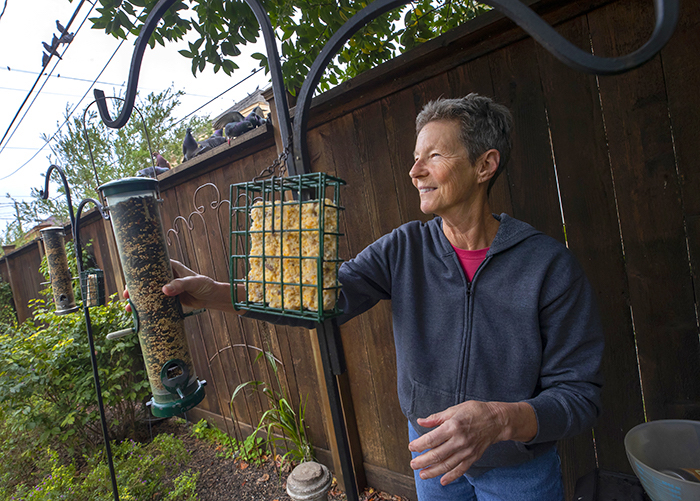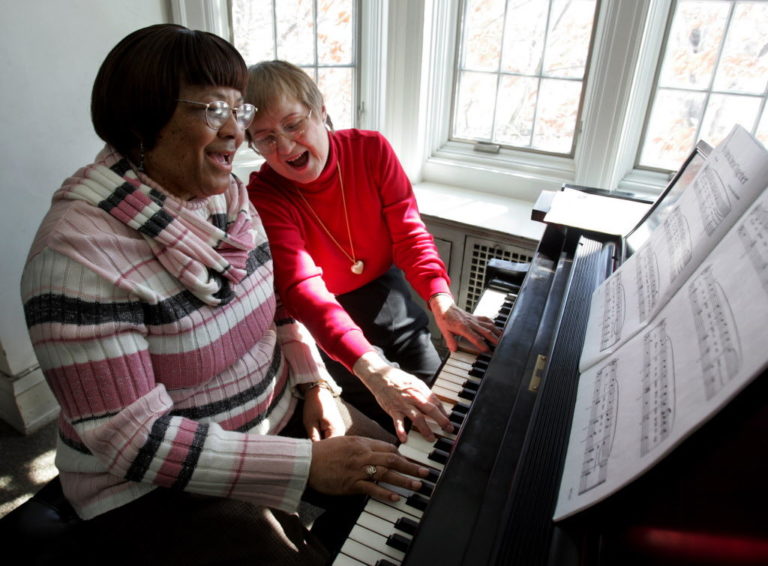The Joy of Discovering Preserved Abilities
In honor of Better Hearing and Speech month, I’d like to say a few words about communication and the relationships we have with our loved ones with dementia. I’d like to share a story with you. Last year I worked with a client who lived with frontotemporal degeneration. I made a once weekly home speech therapy visit to help her with communication skills and to find ways for her to become engaged again with her family and friends.
Frontotemporal degeneration is a progressive deterioration of the temporal and frontal lobes of the brain. These areas of the brain play a significant role in decision-making, behavioral control, emotions and language. This degeneration of the brain can cause a language disorder called semantic Primary Progressive Aphasia (PPA). The distinguishing feature of semantic PPA is difficulty generating or recognizing familiar words. Some individuals have difficulty recognizing familiar objects and faces as well. Fluent, spontaneous speech is preserved, especially in early stages of the disease. Word-finding and naming deficits are common. Neuroimaging studies reveal loss of brain volume, blood flow, and/or neural activity in the left temporal lobe of individuals living with semantic PPA.
My client, Gina (name changed) had been living with PPA for several years and by the time I met her, she was speaking only automatic greetings and phrases such as “That’s okay.” Gina was unable to answer even the simple yes or no questions that I asked. Because Gina could not communicate her thoughts and needs to her family she became withdrawn and depressed. She sat in her favorite chair for hours every day and her family took over all of the cooking and household chores that she used to complete on her own.
When I first met with Gina and her family, I asked them a few questions:
“What are some things that have always been important to Gina?”
“What did Gina enjoy doing most during the day?”
“How do you think Gina would like to spend her time now?”
I learned that Gina’s religious practices were central to her sense of wellbeing. Her son indicated that each night the family took turns sharing their blessings of the day with each other and saying a meal time prayer of thanks. Gina had not been able to participate for many months.
Next, I spent time with Gina to discover her preserved abilities. During the speech-language evaluation, I learned that Gina could read and sing, and that she loved to do both! When I work with clients, I learn about their skills, interests, and abilities and use those to compensate for their deficits. I collaborated with the family to write blessings, prayers and favorite hymns in large print so that Gina could read them. Through practice, repetition, and encouragement, Gina began participating in the dinnertime sharing of daily blessings by reading a preprinted note card of her choice. She began singing with music the family played throughout the day and the expression of sadness gradually began to fade from her face.
As a result, the whole family dynamic changed. After several weeks of educating the family about what Gina could do, rather than focusing on what she couldn’t do, Gina was participating in chores, singing throughout the day, and reading labels we made for common household items to express her choices and needs.
Communication takes many shapes and forms, just like us. Throughout life, all the little things accumulate and make a relationship with our loved ones what it is. Don’t forget those little things; savor them. Find joy in the little things and your relationship will prosper. Look for the person within, not the dementia.
© 2014 Jennifer A Brush, do not copy or distribute without permission




